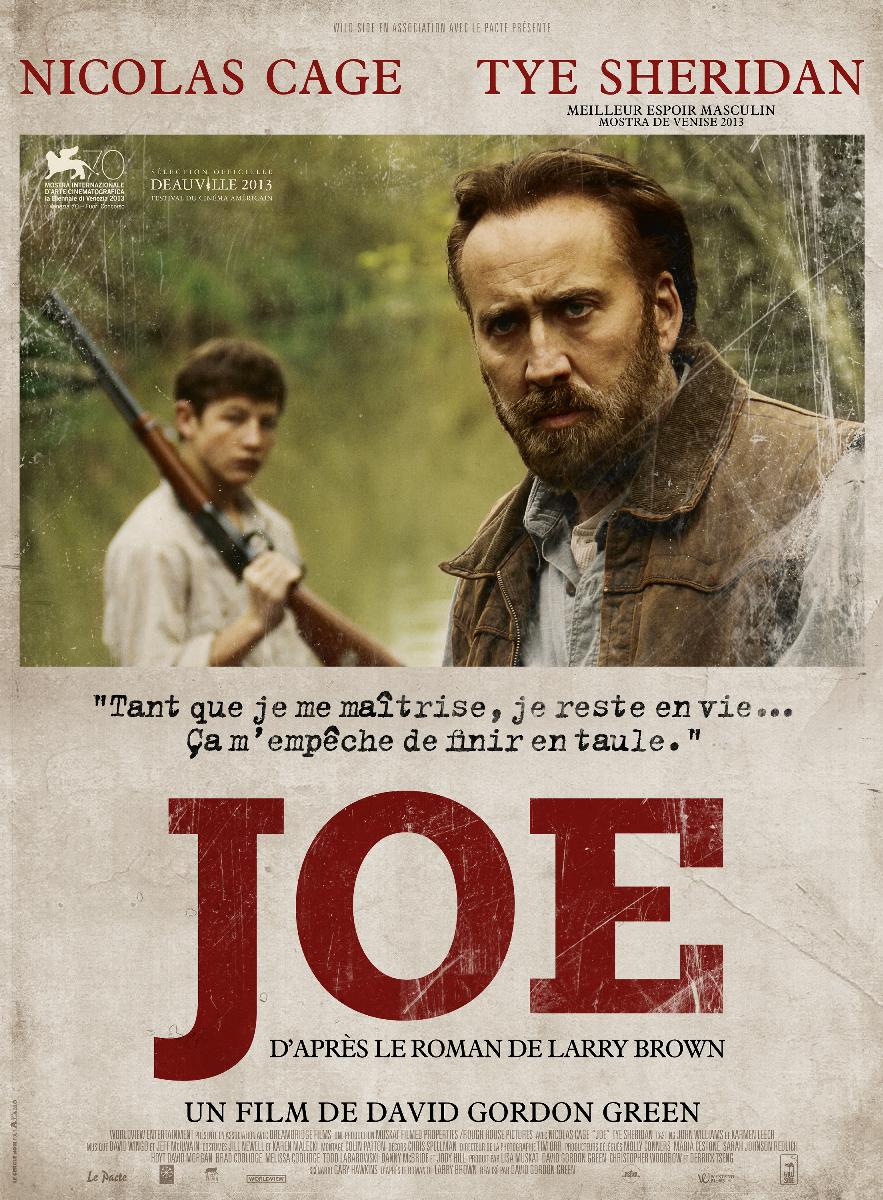Nicolas Cage. Love him or hate him, everyone has an opinion on the Hollywood-royalty-turned-butt-of-every-B-movie joke. Having spent nearly the past decade yelling and contorting in countless excuses for movies, Cage reminds us with “Joe” that he is still a great actor capable of a truly immersive performance. “Joe” is the Southern rustic tale of a violent and insular man willing to put himself on the line for those who cannot take care of themselves.
HAVEN’T WE SEEN THIS BEFORE?
The biggest downfall of the film is the inescapable feeling that we have seen this all before. Audiences privy to the indie film world will ask themselves, “Isn’t this a lesser version of ‘Mud?’” The similarities are inescapable — both take place in the rustic fringes of the deep South, both center on a “man with a past” who takes a troubled boy under his wing, and both star teen wunderkind Tye Sheridan.
The plot is pretty thin: Joe (Cage) takes a hard-working 15-year-old boy, Gary (Sheridan), under his wing after finding out he’s being abused by his alcoholic father (Gary Poulter). Joe’s world is riddled with habit and reclusiveness. He spends his days running a tree-poisoning business and his nights curled up on the couch with a beer and TV. He’s just trying to stay out of trouble. This is of course complicated when Gary enters his life, an old flame (Heather Kafka) takes up residence in his house, and a crazy man (Ronnie Gene Blevins) who can’t let bygones be bygones is trying to hunt him down.
TOO LONG FOR TOO LITTLE
Screenwriter Gary Hawkins, working off the grimy novel by Larry Brown, and director David Gordon Green struggle to find cohesiveness, drive and clarity throughout the overall narrative. Subplots are curiously both half-baked and given too much attention. This is especially true for the dramatically inert first half, which consists of Joe interacting with various hard-edged characters who pepper the brutal Mississippi town.
Much credit must be given, though, to the palpable sense of atmosphere. From the boozy brothels, ramshackle neighborhoods and seedy dive bars, Gordon Green creates a time and place that feels dreadfully lived-in and authentic.
PERFORMANCES ABOVE ALL ELSE
“Joe” expertly delivers characters that feel honest, unpredictable and scarred by history. As stated before, Cage reminds us that he is still a great actor, imbuing Joe with an incredible physicality and hard-shell rage while also letting a softer wisdom and integrity seep through the cracks.
17-year-old Tye Sheridan turns in his best performance yet, finding a pitch-perfect balance between Gary’s childlike enthusiasm and profoundly stubborn maturity. He is put in the tough position of having to provide for his mom and sister while protecting them from their evil patriarch. Having already worked with Terrence Malick, Jeff Nichols and now Green, Sheridan already shows amazing taste and craft … or he just has a really fantastic agent.
The real revelation is non-actor Gary Poulter who plays Wade, Gary’s abusive, alcoholic and sadistic father whose only care is getting another swig from the bottle. This is Poulter’s only film performance, and he shows a man hardened and destroyed by both inner and outer demons. He is a man who deserves no sympathy or redemption.
OVERALL
At its core, “Joe” is a character study of violent men living in a violent world — but they are men who are still capable of love and compassion. Although a bit overlong and meandering, the film does manage to find its groove and deliver a satisfying conclusion that rings true.







